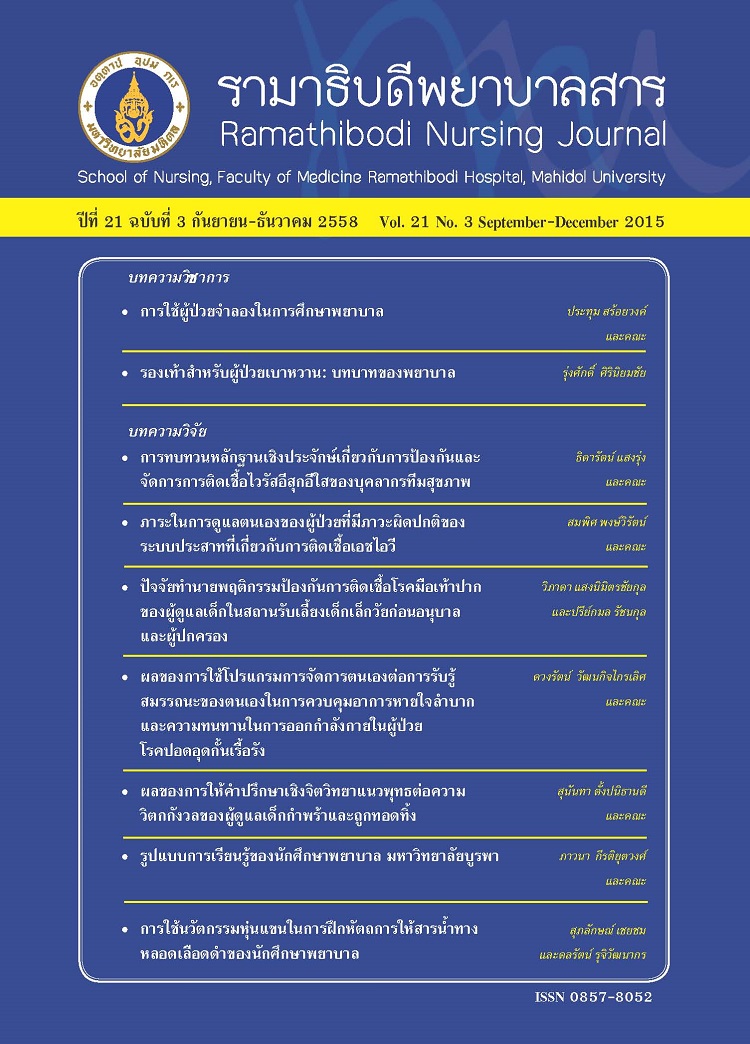Effect of Counseling Based on Buddhist Psychology on Anxiety in Foster Parents
Main Article Content
Abstract
Abstract : The purpose of this quasi-experimental research aimed to determine the effect of counseling based on Buddhist Psychology (BP) on anxiety in foster parents. The study was conducted in one sample group and evaluated a total of 6 times: 1 pre-experimental evaluation, 4 during the experimental evaluation and 1 post-experimental evaluation with 3-4 weeks interval between each evaluation. Based on the protection of patients’ rights, the purposive sample comprised 11 foster parents of the Thai Red Cross children home village. The 11 foster parents attended the counseling based on BP 3 hours per session for 14 weeks with a total of 5 sessions. The instruments used in the experiment included the counseling based on BP. The data collection instrument was the Spielberger State Anxiety Inventory (1983). The data were analyzed with SPSS/FW program version 18 in descriptive statistics and paired T-Test. The findings showed that the average anxiety scores of foster parents who participated in the counseling based on BP were statistically and significantly lower than prior to the experiment. Moreover, the mean score of anxiety was decreased significantly after participation at sessions 1, 2, 3, 4, and 5. In conclusion, the counseling based on BP could be used to reduce anxiety in foster parents.
Article Details
บทความ ข้อมูล เนื้อหา รูปภาพ ฯลฯ ที่ได้รับการตีพิมพ์ในรามาธิบดีพยาบาลสาร ถือเป็นลิขสิทธิ์ของวารสาร หากบุคคลหรือหน่วยงานใดต้องการนำทั้งหมดหรือส่วนหนึ่งส่วนใดไปเผยแพร่หรือเพื่อกระทำการใด ใด จะต้องได้รับอนุญาตเป็นลายลักษณ์อักษรจากรามาธิบดีพยาบาลสารก่อนเท่านั้น


